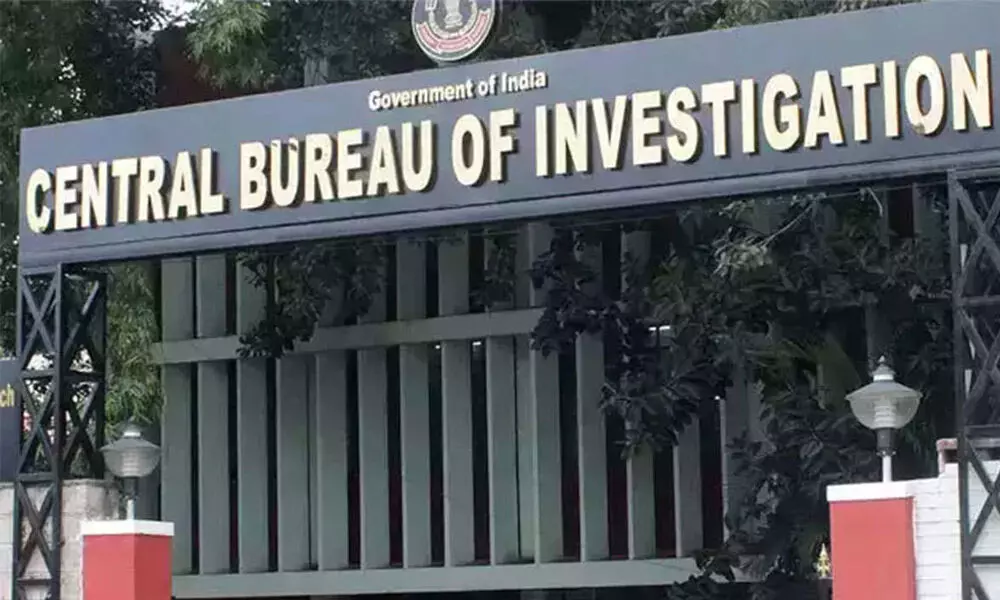IMFPL Booked By CBI Officials For Cheating 4 Banks Of Rs 110 Crores
The four banks are SBI, which is accused of being defrauded of 35 crore rupees, 33.50 crore rupees by the SIDBI, 26.40 crore rupees by the Union Bank of India, and 15 crore rupees by the IDBI Bank Ltd.

The CBI has recently rebooked the officials of IMFPL (a food manufacturing plant in the Fazilka district) on accusations of defrauding four banks in Chandigarh of Rs 109.90 crore, seven months after submitting a closure report against them.
The four banks are SBI, which is accused of being defrauded of 35 crore rupees, 33.50 crore rupees by the SIDBI, 26.40 crore rupees by the Union Bank of India, and 15 crore rupees by the IDBI Bank Ltd. The International Mega Food Park provides infrastructure services. The company builds testing facilities, drinking water plants, marketing facilities, and processing streams. IMFPL caters to Indian consumers.
The Banks IMFPL Cheated On
SBI – With its corporate headquarters in Mumbai, Maharashtra, SBI is a statutory institution for financial services and a global public sector bank. The lone Indian bank, SBI, is ranked just 221 overall and is the 49th-largest bank globally by total assets on the 2020 Fortune Global 500 ranking of the largest firms in the world. With a 25% market share in loans and deposits overall and a 23% market share in assets, it is a public sector bank and the largest bank in India.
It is the fifth-largest employer in India, with about 250,000 employees. SBI crossed the $5 trillion market capitalization threshold on the Indian stock exchanges for the first time on September 14, 2022, becoming the third lender (after HDFC Bank and ICICI Bank) and the seventh Indian corporation to do so. The bank, which was founded in 1806 through the Imperial Bank of India, is the oldest commercial bank on the Indian subcontinent. It is a direct descendant of the Bank of Calcutta.
The Bank of Madras combined with the Bank of Calcutta and the Bank of Bombay, the other two presidential banks in British India, to form the Imperial Bank of India, which later changed its name to SBI in 1955. In 1955, the Indian government acquired control of the Imperial Bank of India, renaming it SBI, with the Reserve Bank of India owning a 60% interest.

SIDBI – India’s leading licencing and regulatory body for micro, small, and medium-sized company finance firms is the Small Industries Development Bank of India (SIDBI). It is overseen by the Ministry of Finance, a division of the Indian government with a Lucknow headquarters and offices located all around the country.
On April 2, 1990, the Indian government founded the SIDBI as a wholly owned subsidiary of the IDBI Bank. Since March 27, 2000, it had been disconnected from IDBI. A parliamentary act led to its establishment in 1989. The Reserve Bank of India regulates and supervises four All India Financial Institutions: SIDBI, India Exim Bank, NABARD, and NHB. But lately, the government acquired more than 51% of NHB, putting it under its control. They fulfill the long-term financing requirements of the industrial sector and have a legal obligation to participate in the financial markets through credit extension and refinancing operations.
Union Bank of India – It is a public sector bank in India with its headquarters in Mumbai. It is sometimes referred to as Union Bank or UBI. It transacts business with more than 120 million people and brings in US$106 billion annually. The united business has around 8700 branches after merging with Corporation Bank and Andhra Bank, which went into effect on 1 April 2020, making it one of the largest PSU banks in terms of the branch network.
In Sydney, Dubai, Antwerp, and Hong Kong, there are four of them. UBI also maintains representational offices in Beijing, Shanghai, and Abu Dhabi. UBI’s wholly-owned subsidiary, Union Bank of India, operates in the United Kingdom (UK). The bank employs more than 75,000 people and serves more than 120 million customers through a network of more than 8700 domestic branches, 11100 ATMs, and 15300 business correspondent points.
The IDBI Bank Ltd – It is a development finance organisation that is jointly owned by the Indian government and the Life Insurance Company of India. In order to provide financial services to the industrial sector, the Industrial Development Bank of India was established in 1964 as a development finance organisation. The RBI adjusted IDBI right away, and on March 10, 2021, PCA released IDBI.

Currently, the Government of India owns a direct and indirect 95% stake in IDBI Bank. In a communication dated December 17, 2019, the Government of India clarified this situation and instructed all Central and the State Government departments to consider IDBI Bank when allocating government business. Numerous national institutions, including SIDBI, EXIM, the National Stock Exchange of India, SEBI, and National Securities Depository Ltd, have their roots in IDBI.
As of March 31, 2016, the bank’s total balance sheet was 3.74 trillion. As of 1 February 2020, it has 3,683 ATMs, 1,892 branches, one of which was overseas in Dubai, 58 e-lounges, and 1,407 centers. In September 2021, Life Insurance Corporation owned 49.24% of the shares, compared to the Government of India’s 45.48%, and LIC controlled the bank’s management.
Allegations On IMFPL
The IMFPL is headquartered in Chandigarh’s Sector-5 at House Number-3. Owners of the business include managing director Sukhinder Singh, his wife, director Kanwal Sukhinder Singh, and their son, Simarinder Singh, a full-time director. Satyan Malhotra, a US-based NRI, Davinder Singh Jaaj of Sector-27, Gurpartap Singh of Sector-10, Nanki Singh of Gurugram, and Bhuinder Singh of Bombay are the other five people who have been detained.
In his lawsuit, Sanjay Kumar, the deputy general manager of SBI, did not completely rule out the possibility that certain bank employees were complicit in the scam and committed crimes alongside the IMFPL management. The CBI arrested the IMFPL office holders in 2019 for allegedly cheating the Small Industries Development Bank of India (SIDBI) of a fraud totaling Rs 33.50 crore. In August 2022, the investigating agency submitted a report of closure in the case to Sukhdev Singh, Special Judicial Magistrate, CBI, in District Courts, Sector 43, Chandigarh.
According to a source, Sanjay Kumar, a Deputy General Manager at SBI, filed a new FIR against IMFPL Food Park. Allegedly, the scam occurred between April 2012 and March 2017. A financial audit done by a private company, M/s PVRN and Co., revealed the fraud. The scam was committed at two branches of the bank in Chandigarh, where the accused stole money using fraudulent bank accounts.

According to the financial examination, the IMFPL committed multiple financial irregularities. The alleged defendants made unsecured loans to other firms using the loan profits. The establishment of 12 collecting centres and 4 major processing centres was required of IMFPL, but the corporation only built a small amount of food processing equipment. Articles 420 and 120B of the Indian Penal Code, as well as Sections 13(2) and 13(1)(d) of the 1988 Prevention of Corruption Act, were used to register the FIR.
Functioning Of IMFPL
IMFPL was founded in 2010 as a closely held public limited company and special purpose entity. At the village of Dabwala Kalan, it has established a huge food park as part of the Government of India’s (GOI) Mega Food Parks’ Plan (Fazilka, Punjab). The project’s overall cost was Rs. 1364 million, and it was funded in a debt-to-equity ratio of 1:1 using a term loan of Rs. 564 million, promoters’ contributions of Rs. 300 million, and a grant from the government of India for Rs. 500 million. International Fresh Farm Products Pvt Ltd (IFFPL), Narain Exim Corporation (NEC), and Citrus Estates (CE) are some of the SPV’s main promoters.
Along the value chain from the farm to the market, the project is anticipated to offer necessary infrastructure facilities for food processing. Retail and wholesale sales of dairy and agricultural products, rentals from facilities for food processing and cold storage, and sales of electricity from IMFPL’s biomass power plant to the Punjab State Electricity Board (PSEB) would be the company’s main sources of income. In February 2014, the dairy, cold storage, and warehousing segment operations got underway.
A multi-dimensional food processing infrastructure facility is located at International Mega Food Park Ltd (IMFPL) in the Dabwala Kalan District of Fazilka. The main goal of the IMFPL is to offer good infrastructural facilities that are appropriate for food processing along the entire value chain, from farm to market. Infrastructure development close to the farm, transportation, logistics, and centralized processing facilities is all part of it. The cluster-based method is the scheme’s key component.
Edited by Prakriti Arora



